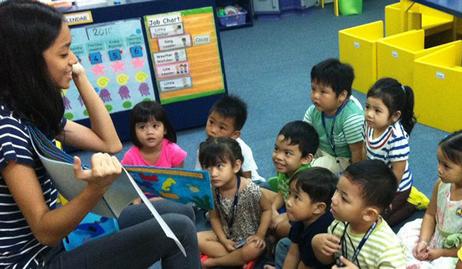Progressive schools have been around since the early 1900s. Some educators think that progressives are rebels against traditional rote learning. Progressive educators like to think of themselves as reformers. The truth is somewhere in between the two points of view.
This video offers an overview of the Progressive movement.
The movement has an interesting history. Read about John Dewey (1859-1952), the modern founder of the movement in the U.S. You can only wonder what might have happened to public education had some of his ideas taken root. As it is, progressive educators and schools that employ their philosophies are confined to the private sector. A list of private schools that embrace progressive ideals, teachings, and curricula is below.
- Bank Street College of Education
- Buxton School
- The Calhoun School
- The Children's Community School
- The Children's School of Oak Park
- The City and Country School
- Dalton School
- Foundations School Community
- Friends Community School
- Greenwood Friends School
- The Little Red Schoolhouse and Elisabeth Irwin High School
- The Little School
- The Manhattan Country School
- The Miquon School
- Oak Lane Day School
- Oakwood School
- Our Community School
- The Park School of Baltimore
- The Park School of Buffalo
- The Philadelphia School
- Presidio Hill School
- The Putney School
- San Roque School
- The School in Rose Valley
- Sequoyah School
- St. Francis School
- Westland School
- Windrush School
- Wingra School
The Origins of the Progressive Movement
In the latter half of the 20th century, the Progressive Education Movement experienced a resurgence, particularly in response to the changing societal and technological landscape. As educational theorists and researchers began to emphasize the importance of individualized instruction, student engagement, and critical thinking skills, progressive ideas found renewed support. This led to the establishment of alternative schools, such as Montessori schools and Waldorf schools, which embraced the principles of the Progressive approach. Additionally, many mainstream schools adopted elements of the Progressive philosophy, integrating hands-on activities, cooperative learning, and student-centered instruction into their practices.
In the 21st century, the Progressive Education Movement continues to evolve and adapt to new educational challenges and opportunities. With the advancement of technology, there is a growing emphasis on digital literacy and the integration of technology tools in the classroom. Progressive educators also strive to address issues of equity and inclusivity, recognizing the importance of diversity and culturally responsive teaching. They advocate for personalized learning approaches that accommodate different learning styles and support students' individual strengths and interests. Overall, the Progressive approach remains a significant force in shaping K-12 education in the United States, contributing to the ongoing pursuit of educational excellence and the holistic development of students.
How a Progressive K-12 education impacts college admissions.
Many parents will be concerned about the Progressive approach and its potential impact on their children's chances of gaining admission to top universities. However, it is important to dispel the misconception that a Progressive education jeopardizes a student's prospects for college acceptance. In fact, the Progressive approach can foster valuable skills and qualities highly sought by universities.
First and foremost, the Progressive approach places a strong emphasis on critical thinking, problem-solving, and creativity. Students are encouraged to explore and question concepts, think independently, and develop innovative solutions. These skills are not only highly relevant in today's rapidly changing world but are also highly valued by colleges and universities. Admissions committees recognize the importance of students who can think critically, adapt to new situations, and demonstrate creative approaches to problem-solving.
Furthermore, the Progressive approach often promotes collaborative learning and effective communication skills. Students engage in group projects, discussions, and presentations, which enhance their ability to work effectively as part of a team and articulate their ideas clearly. These skills are essential in college and beyond, where collaboration and effective communication are highly valued in both academic and professional settings.
Additionally, the Progressive approach nurtures a love for learning and intrinsic motivation in students. By focusing on their interests and providing hands-on, experiential learning opportunities, students develop a genuine passion for subjects and are more likely to become lifelong learners. Colleges appreciate students who demonstrate intellectual curiosity and a genuine enthusiasm for learning, as it indicates a higher potential for success in a challenging academic environment.
It is also important to note that colleges and universities value a diverse range of educational backgrounds and experiences. They understand that not all students will come from the same type of educational system. Admissions committees assess applicants holistically, considering factors such as academic performance, extracurricular involvement, community service, leadership, and personal essays. A Progressive education can provide a well-rounded educational experience that cultivates various aspects of a student's development, thereby enhancing their college applications.
Ultimately, the individual student's academic achievements, personal growth, and accomplishments play a significant role in college admissions. The Progressive approach, when implemented effectively, equips students with the necessary skills, attitudes, and characteristics that universities value. Therefore, parents can rest assured that a Progressive education does not jeopardize their children's chances of getting into a top university.
Questions? Contact us on Facebook and Instagram. @privateschoolreview
#ProgressiveEducation #HolisticLearning #CollegeAdmissions #privateschools













